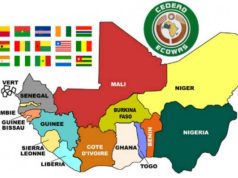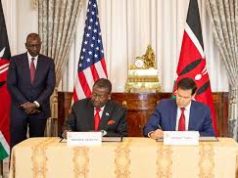The Federal Government is set to forfeit $4 million from a World Bank loan after failing to meet international auditing standards for a key revenue reform initiative covering the Federal Inland Revenue Service (FIRS) and the Nigeria Customs Service. This shortfall is part of the $103 million Fiscal Governance and Institutions Project, a public financial management program funded by the International Development Association.
According to a World Bank restructuring paper dated June 2025, the revenue assurance audit for FIRS and Customs spanning 2018 to 2021 was deemed incomplete. Reports submitted for verification reportedly failed to comply with global auditing benchmarks.
The document states, “Revenue assurance audit of Main Income Generating Agencies, including the Federal Inland Revenue Service and the Nigeria Customs Service for FY 2018–2021 with an allocation of $4 million. These intermediate results were assessed as not achieved by the Independent Verification Agent due to non-compliance with international auditing standards.”
This failed audit was one of ten performance-based conditions under the project that the government could not fulfill before the June 30, 2025, closing date. Consequently, the Federal Ministry of Finance formally requested the cancellation of $10.4 million in project funds.
“The FMF has requested the cancellation of $0.9 million in unused technical assistance funds and $9.5 million allocated to ten Performance-Based Conditions that will remain unmet by the project’s closure on June 30, 2025,” the document read.
Further breakdowns reveal that $4.5 million was tied to the incomplete Revenue Assurance and Billing System, while $1 million was earmarked for developing a National Budget Portal. The Budget Office of the Federation, responsible for the portal, failed to provide evidence of progress. Additionally, $0.9 million in uncommitted technical assistance funds has also been canceled.
The document added, “The proposed change involves canceling $10.4 million, comprising $9.5 million for unachieved Performance-Based Conditions and $0.9 million in uncommitted technical assistance funds.”
This adjustment follows an earlier restructuring in June 2024, during which $22 million was removed from the original $125 million budget, reducing the project to $103 million. With the latest cancellations, total funding now stands at $92.6 million.
Launched in June 2018 and effective from May 2019, the Fiscal Governance and Institutions Project aimed to enhance public finance credibility and national statistics through reforms in revenue administration, budget transparency, and data systems.
Despite missing critical targets, the project achieved notable progress in other areas, particularly revenue performance. Non-oil revenue outturn reached 153% of the budgeted target in 2024, up from 64.9% in 2018. This improvement was attributed to Nigeria’s exchange rate unification, enhanced tax administration via the TaxProMax system, and automated revenue remittances from ministries and agencies.
Other successes include exceeding expectations in publishing reconciled economic and fiscal datasets, achieving ten publications against the target of six. Additionally, the Corporate Affairs Commission launched the Electronic Register of Beneficial Owners, now covering 40% of registered businesses, while the Ministry of Finance Incorporated published a National Asset Registry and financial reports.
However, capital expenditure execution remains below the 65% target at just 50%, and project monitoring and evaluation were rated as moderately unsatisfactory.
The final disbursement for the project is projected at $96.04 million, representing 93% of the pre-cancellation total of $103 million. This development underscores the need for stricter adherence to international standards and improved implementation frameworks to maximize future funding opportunities.
Follow us on Instagram.
https://www.instagram.com/businessnewsng?igsh=ZXpweTdjOGF1ZXdu

























